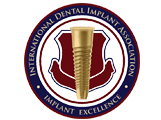For most of us, a dental crown becomes a part of our mouth, almost like a real tooth. We might even forget that it’s there. So it can come as quite a shock when a crown falls off. And while crowns can be long lasting, they are subject to the same kinds of wear and tear as our teeth, and they do fall out. There’s usually no need to panic, but you should be sure to see your dentist as soon as possible.
What Is A Crown?
A dental crown is a tooth-shaped cap that’s placed over a tooth. A crown can repair a broken tooth, protect a weak tooth or cover a large filling or root canal. It is generally bonded to the remaining tooth with dental cement. Most crowns are made from ceramic material, in some cases fused to metal. Some patients opt for long-lasting crowns made of gold or other strong metals, but many patients prefer ceramic material because it can be made to look like neighboring teeth. Porcelain crowns are particularly common, and as they age, many do become loose and fall out. Most dentists estimate the average lifespan of a dental crown at 10 to 20 years.
Why Do Crowns Fall Off?
Crowns can become loose and fall off for a variety of reasons. In some cases, there’s a problem with the crown itself. In others, problems with the tooth underneath may cause the crown to fall off. A crown can become loose because of outside factors like an injury or biting down on hard food. Tooth decay underneath the crown is another important reason a crown may become loose. In this case, the decay will need to be treated before the crown is replaced.
Consistent grinding or clenching of teeth can also lead to the loss of a crown. Many of us don’t realize the kind of pressure we put on our teeth by grinding or clenching. If your dentist determines that this is a factor in your case, he may recommend a night guard after repairing your tooth and replacing your crown. In some cases, the bonding agent may simply wear out, causing the crown to loosen.
What Do I Do If My Crowns Falls Out?
The focus when you lose a crown is to keep the underlying area from getting infected while waiting for a replacement. The best way to do this is to see your dentist as quickly as possible, and of course keep the area clean in the meantime. Gently brushing with a soft brush and rinsing with a saltwater solution are two ways to help keep the area clean.
If you notice that your crown has become loose in your mouth, try to find and save it if possible. Make sure not to swallow it or breathe it into your lungs. Call your dentist’s office right away, and let the receptionist know that your crown has fallen out. Even busy dentists generally reserve a few emergency spots throughout the week, and the office should be able to fit you in within a couple of days.
If you have recovered the original crown and can’t get in to see your dentist right away, talk to your dentist’s office about replacing the cap with a temporary dental adhesive while you wait to see the dentist. Be sure to use a dental adhesive are sold over the counter in the dental section, and don’t use glue or any other adhesive not specifically made for dental use. In some cases, however, self-replacement is not recommended as the crown has a greater chance of coming loose and being swallowed or inhaled. Even if you are able to temporarily replace the crown, remember it’s not a permanent solution, and you should still see your dentist as soon as possible.
Avoid chewing on the area, whether or not you have temporarily replaced the crown. The area will be sensitive and you want to avoid getting food into the affected area to reduce the risk of infection.
What Will My Visit Be Like?
Before replacing the crown, your dentist will disinfect the area, and take care of any decay or damage to the underlying tooth. In some cases, if that decay or damage is extensive, your dentist may recommend a dental implant instead of a replacement crown. Then he’ll replace the existing crown if possible or fit you for a replacement by making a mold of the existing tooth and having a new crown made in a laboratory. In some cases, two or more visits may be required to complete the process.
Dental crowns fall out, and it isn’t usually an emergency. But remember, a crown not only enhances your appearance, it also serves as a barrier between bacteria and the underlying tooth and gums. Your primary concern is to avoid infection of this sensitive area, and this means getting into the dentist’s chair as quickly as possible. Taking action quickly generally means an easier repair and a faster return to your old smile.











